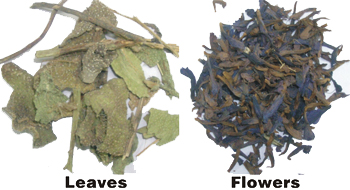Your cart is currently empty!
Borago officinalis Linn.
![]()
Arabic Name : Lisan ath-thawr, Himhim, Hamham, Abu Araq, ‘Alas
English Name : Borage, Bugloss, Beebread, Burrage, Starflower
French Name : Bourrache
German Name : Borretsch, Burres, Borgelkraut, Wohlgemutkraut

Gujarati Name : Gaojaban
Hindi Name : Gaojaban
Kannada Name : Doddapatre
Latin name : Borago officinalis Linn.
Marathi Name : Gaojaban
Persian Name : Gaozaban
Sanskrit Name : Gojivha
Urdu Name : Gaozaban
Description : The leaf and flower are adaptogenic, adrenal tonic, alterative, antiinflammatory, aperient, calmative, cardiac tonic, cooling, decongestant, demulcent, depurative, diaphoretic, diuretic, emollient (flower), expectorant, febrifuge, galactagogue, hypotensive, laxative, nervine, pectoral, refrigerant, sedative, stimulant and sudorific (leaf). Borage is much used for fevers and pulmonary complaints. By virtue of its saline constituents, it promotes the activity of the kidneys and for this reason is employed to carry off feverish catarrhs. Its demulcent qualities are due to the mucilage contained in the whole plant. Internally useful for bronchial infections (including tuberculosis and pleurisy), mouth and throat infections, dry cough, dry skin conditions, cirrhosis, premenstrual syndrome (PMS), thirst and chronic nephritis. Also stimulates breast milk production in nursing mothers and supports menopausal changes. Borage acts as a restorative agent on the adrenal cortex, which means that it revives and renews the adrenal glands after a medical treatment with cortisone or steroids. There is a growing need for naturals that will aid this gland with the stress it is exposed to, both externally and internally. In 1989, Canadian researchers found that Borage reduced the effect of stress in the cardiovascular system. Stimulates bile secretion and reduces gall bladder inflammation.
Borage has been used since early times to relieve depression and reduce chills and influenza. The flowers or leaves also act as an antidiarrhoeal remedy. They invigorate the heart and are also useful in palpitation and melancholia. The seeds are a good source of gamma-linoleic acid (24%), an omega-6 polyunsaturated fatty acid thought to reduce the risk of arteriosclerosis and to lower blood pressure and this acid is active against various cancers, such as breast, brain and prostate.
Recommended Dosage : Leaf : 5 to 7 g powder; Flower : 3 to 5 g powder.
Contraindication : The plant (but not the oil) contains a small amount of pyrrolizidine alkaloids that may cause toxicity in the liver, and Borage should never be taken in large doses (many times the recommended amount) or for a long period of time. If you are taking blood-thinning medication, speak with your doctor before using Borage. This herb is not recommended during pregnancy. Those suffering from epilepsy, schizophrenia or those taking phenothiazine tranquillisers should not use Borage.






Leave a Reply
You must be logged in to post a comment.